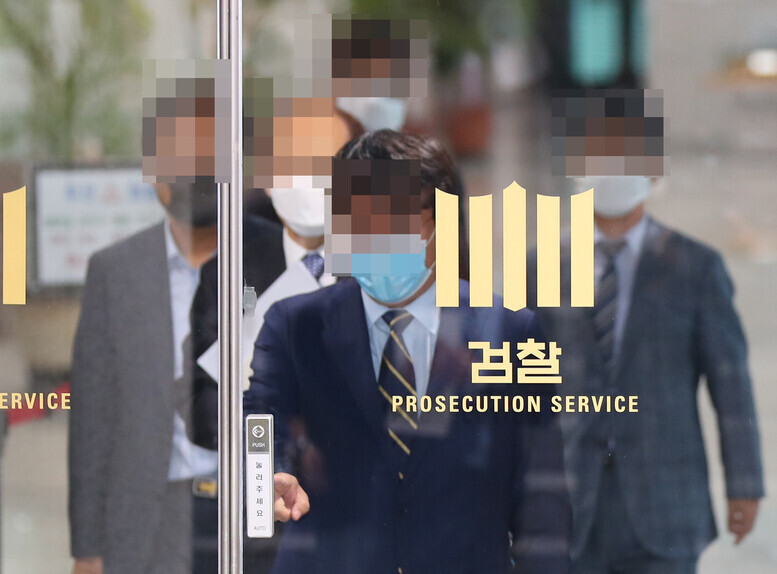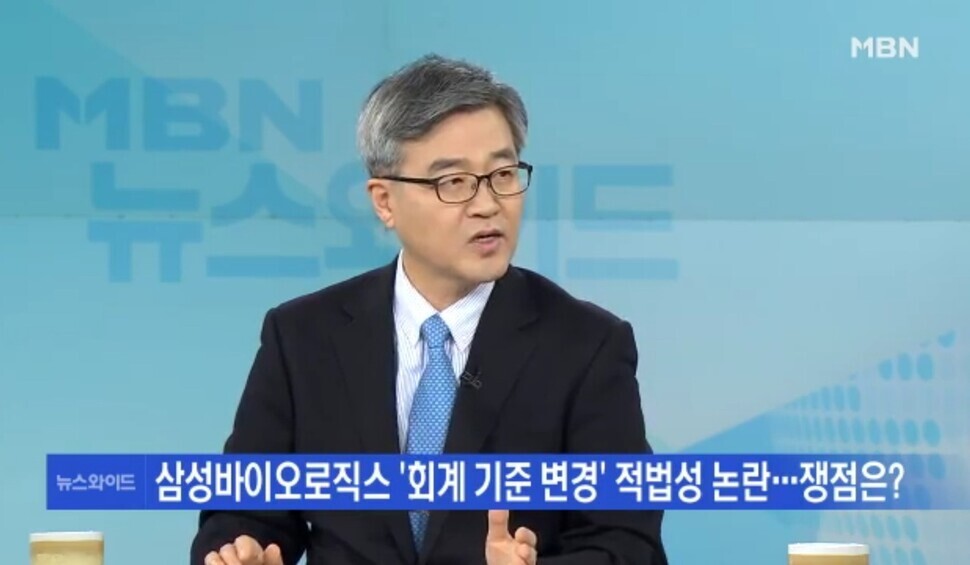hankyoreh
Links to other country sites 다른 나라 사이트 링크
[Editorial] Investigation review panel for Lee Jae-yong’s case needs to be more transparent

The decision by a panel of outside experts for the Supreme Prosecutors’ Office (SPO) to recommend suspending the investigation and planned indictment of Samsung Electronics Vice Chairman Lee Jae-yong for illegal management succession activities is igniting controversy. Civic groups such as the Citizens’ Coalition for Economic Justice, the Solidarity for Economic Reform, and the People’s Solidarity for Participatory Democracy expressed concern and dismay, calling the decision “nonsensical and unacceptable.” Criticisms have also been voiced by the ruling party. Democratic Party lawmaker Noh Woong-rae posted a Facebook message decrying an “exceedingly unfair decision that not only says ‘you’re guilty if you don’t have money and not guilty if you do,’ but that you don’t even face a trial or investigation if you have money.” Fellow lawmaker Park Yong-jin called the decision “contrary to legal common sense and difficult to accept emotionally for the South Korean public.”
The case referred to the review panel concerned charges of illegal practices related to the management rights of succession as stated in Lee’s arrest warrant, including the unfair merger of Samsung C&T and Cheil Industries and accounting fraud by Samsung BioLogics. A court reviewing the arrest warrant request on June 9 concluded that “the basic facts have been established, and a considerable amount of evidence has been obtained through the investigation to date.” It also said that it would be “appropriate to determine the question and extent of the suspects’ responsibility through sufficient litigation and review in the trial process.”
While the court dismissed the warrant request to guarantee the suspect’s right to defense, it also stated the need for a trial -- yet the review panel reached the exact opposite conclusion after just half a day’s debate.

In cases of major decisions like these, the review process and basis for the decision need to be clearly stated, but the review panel offered only that it was “approved by majority agreement.” It did not disclose any specifics about which members took part or what the basis and reasoning for their decision was. This seems to suggest that this nonsensical decision emerged as a result of the review panel’s non-transparent management.
Indeed, a Hankyoreh report from June 29 said that one of the review panel participants was Kim Byoung-youn, a Konkuk University law professor who has actively defended Samsung’s position in press interviews and columns over the years. Kim has criticized the Samsung BioLogics accounting fraud determinations by financial authorities and maintained that the prosecutors’ investigation of Lee Jae-yong has been “immoderate.” Another review panel member was a professor surnamed Lee from the law college at Sungkyunkwan University, where Samsung is involved in foundation management. The review panel consists of 15 people randomly selected from a pool of 250 representing fields such as law, academia, and the press. Those whose fairness and objectivity are questionable should have been ruled out during the selection process -- yet there was no prior scrutiny. This points to serious problems in the review panel’s operation.
These sorts of opaque management practices need to be improved if the review panel’s decisions are to win the public’s trust. The transparency and fairness of the panel’s operation need to be increased, for example by disclosing details about the panel members’ selection and meetings.
The prosecutors are supposed to consult the review panel’s decision when making a decision on whether to indict. According to the rules, however, they are not bound to do so. Hopefully, the prosecutors will take the problems with the panel’s composition fully into account when they make their indictment decision.
Please direct comments or questions to [english@hani.co.kr]

Editorial・opinion
![[Column] Park Geun-hye déjà vu in Yoon Suk-yeol [Column] Park Geun-hye déjà vu in Yoon Suk-yeol](https://flexible.img.hani.co.kr/flexible/normal/500/300/imgdb/original/2024/0424/651713945113788.jpg) [Column] Park Geun-hye déjà vu in Yoon Suk-yeol
[Column] Park Geun-hye déjà vu in Yoon Suk-yeol![[Editorial] New weight of N. Korea’s nuclear threats makes dialogue all the more urgent [Editorial] New weight of N. Korea’s nuclear threats makes dialogue all the more urgent](https://flexible.img.hani.co.kr/flexible/normal/500/300/imgdb/original/2024/0424/7317139454662664.jpg) [Editorial] New weight of N. Korea’s nuclear threats makes dialogue all the more urgent
[Editorial] New weight of N. Korea’s nuclear threats makes dialogue all the more urgent- [Guest essay] The real reason Korea’s new right wants to dub Rhee a founding father
- [Column] ‘Choson’: Is it time we start referring to N. Korea in its own terms?
- [Editorial] Japan’s rewriting of history with Korea has gone too far
- [Column] The president’s questionable capacity for dialogue
- [Column] Are chaebol firms just pizza pies for families to divvy up as they please?
- [Column] Has Korea, too, crossed the Rubicon on China?
- [Correspondent’s column] In Japan’s alliance with US, echoes of its past alliances with UK
- [Editorial] Does Yoon think the Korean public is wrong?
Most viewed articles
- 1[Column] Park Geun-hye déjà vu in Yoon Suk-yeol
- 2Thursday to mark start of resignations by senior doctors amid standoff with government
- 3N. Korean hackers breached 10 defense contractors in South for months, police say
- 4[Editorial] New weight of N. Korea’s nuclear threats makes dialogue all the more urgent
- 5Will NewJeans end up collateral damage in internal feud at K-pop juggernaut Hybe?
- 6Kim Jong-un expressed ‘satisfaction’ with nuclear counterstrike drill directed at South
- 7[Editorial] Japan’s rewriting of history with Korea has gone too far
- 8[Column] ‘Choson’: Is it time we start referring to N. Korea in its own terms?
- 9[Cine feature] A new shift in the Korean film investment and distribution market
- 10[Column] The clock is ticking for Korea’s first lady